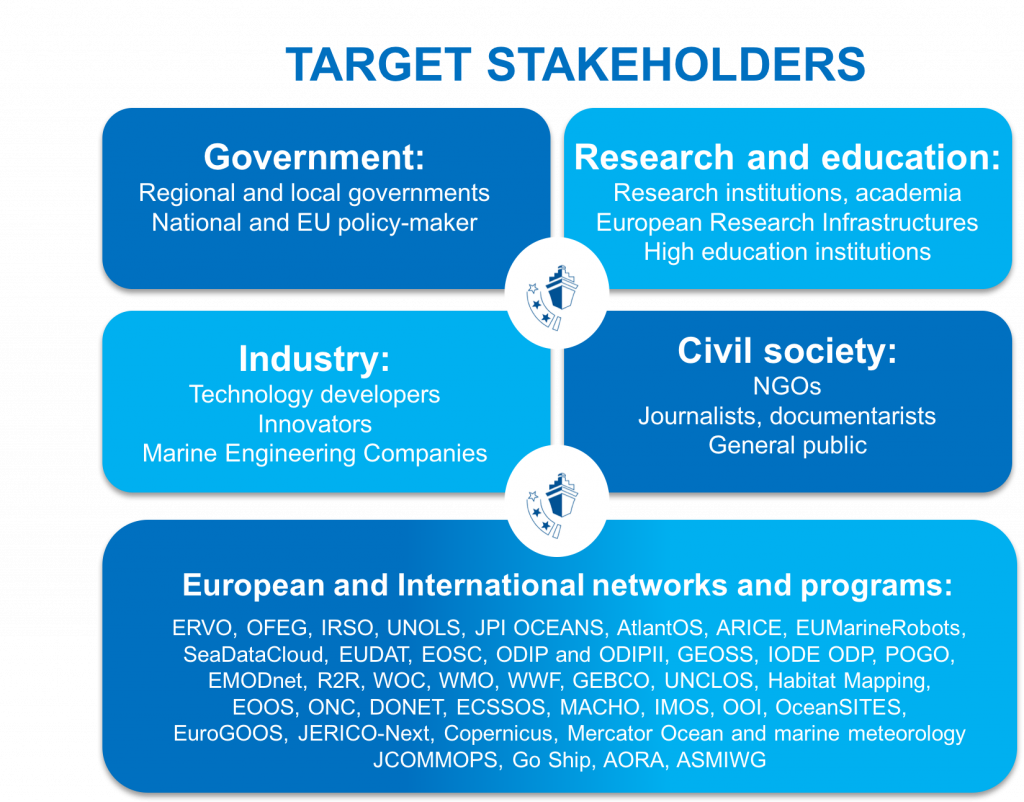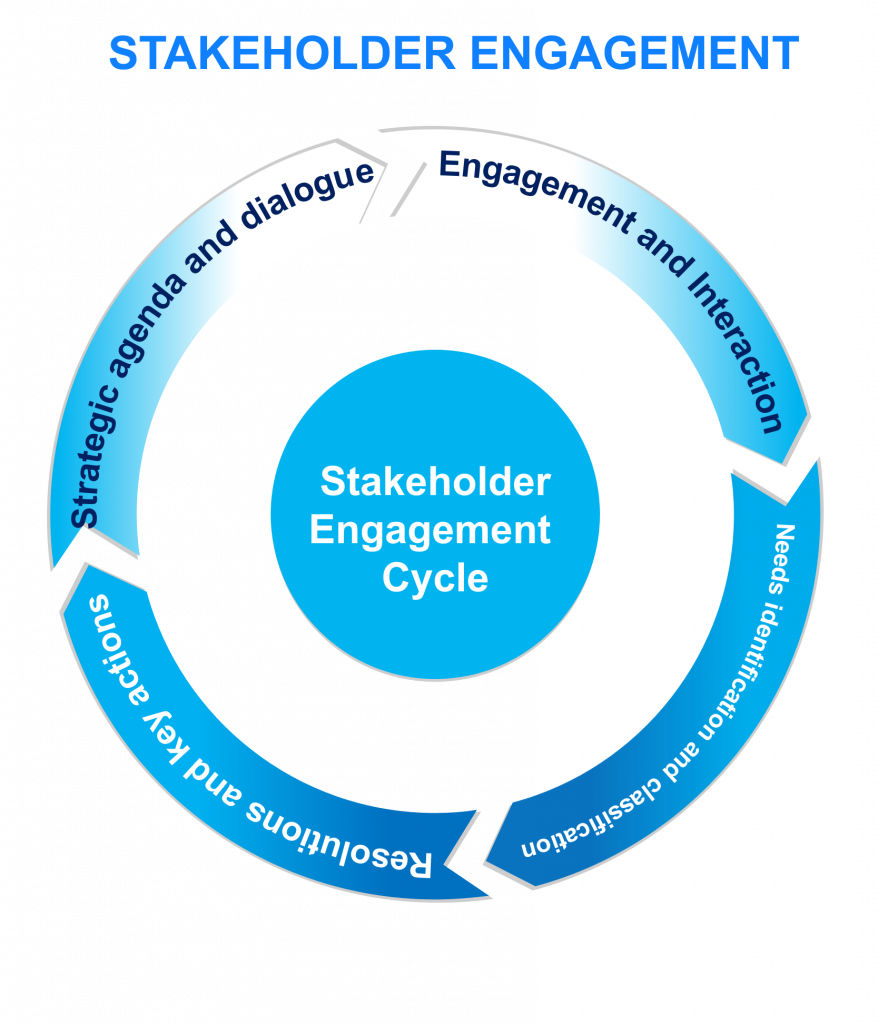Key stakeholders are largely known to the Eurofleets+ consortium due to their involvement in many other relevant initiatives and EU projects in the field of marine science and technology.

Target stakeholders will include: infrastructure managers; research vessel operators (ERVO, OFEG, IRSO, UNOLS); researchers and the scientific community; industry, innovators, technology developers; decision-makers, including policy makers, public agencies, funders, planners, science managers/research managers; media, to include science writers, journalists, documentarists; the general public; existing Research Infrastructures (RIs), EU projects and other initiatives (ICOS, EMBRC, EPOS, LifeWatch, Euro-ARGO, JPI OCEANS, AtlantOS, ARICE, EUMarineRobots, SeaDataCloud, EUDAT, EOSC, ODIP and ODIPII, GEOSS, IODE ODP, POGO, EMODnet, R2R, etc.); the World Ocean Council (WOC); the World Meteorological Organization (WMO); representatives of national and European non-governmental organizations; representatives of international non-governmental environment organizations, for example WWF; those involved with ocean observing systems, research and mapping communities (GEBCO, UNCLOS, Habitat Mapping, etc.); legislators, regulators; and key marine users.
To ensure that the European research fleet meets the needs of evolving ocean observations, taking into account the role of research vessels as part of the wider European Ocean Observing System (EOOS), Eurofleets+ will cooperate closely with European and international fixed and mobile observatory communities and remote sensing communities, including EMSO, ONC (Canada), DONET (Japan), ECSSOS (China), MACHO (Taiwan), IMOS (Australia), OOI (USA), OceanSITES, EuroGOOS, JERICO-Next, and environmental data information Copernicus ocean forecast Mercator Ocean and marine meteorology JCOMMOPS, and Global climate observing system like Go Ship, as well as with the Atlantic Ocean Research Alliance (AORA) and Atlantic Seabed Mapping International Working Group (ASMIWG).
An initial register of stakeholder needs will be created, of relevance to a catalogue of high quality and integrated services. Stakeholder dialogue will be fostered through three main approaches:
- semi-structured interviews: focused on the identification of the stakeholder’s offer and need, on the overlaps between stakeholder and Eurofleets+ missions and strategy, on the mutual collaboration opportunities;
- a web-based discussion forum: a discussion platform will be established on the Eurofleets+ website to enable interested parties to interact with project participants; this will gather all relevant stakeholders and RV operators in one virtual place and will connect the work done for the interviews with those for the preparation of the international workshops;
- two international workshops:
- Workshop 1: Combining fixed and mobile ocean observing systems and their link with satellite observations (July 2020), with the aim to connect the main operators and stakeholders for the benefit of greater coordination that will undoubtedly translate into efficiency and more and better data and connecting to public/society concerning climate change for example – integrating fixed observatories + vessels – portable observatories;
- Workshop 2: Synergies with the Atlantic Mapping program linking with AORA, EMODnet bathymetry and Belém statement (January 2021), with the aim to bring together different stakeholders with a broad industry spectrum (marine biotechnology, ocean energy, telecom, seabed mining, pharmaceuticals, etc.) that have a high potential for sustainable jobs and blue growth.

In addition, to the two workshops, a series of smaller meetings will be held as virtual meetings such as audio-conferencing, multimedia conferencing, screen sharing etc., aiming to prepare the various stakeholders for a fruitful exchange of information and coordinated actions to foster the cross-fertilization between different research infrastructures in the Marine Domain to achieve a productive and large second and final workshop.
Lastly, a strategic agenda will be produced to frame stakeholder engagement and define common priorities between the different players. The agenda will be a living document, to define key global challenges, scope, potential for different types of joint actions and clustering, geographical coverage, and duration: Short (less than 3 years), Medium (5-6 years), and Long (10 years). The agenda will be updated based on stakeholder needs identified through dialogue in order to agree on Global Challenges to be addressed in the long-term (10 years) through the research vessel infrastructure. It will consider EU and International policies such as the Sustainable Development Goals and the Ocean Investment Platform from the World Ocean Council (WOC), and key initiatives promoted by the Intergovernmental Oceanographic Commission (IOC) and UNESCO such as United Nations Decade of Ocean Science for Sustainable Development (2021 – 2030).
